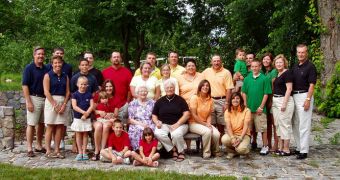According to a new investigation, it would appear that young Americans today resemble their peers living in the 1900s more than they do their parents. The finding may be explained by the fact that we are currently in the middle of an economic downturn, which makes young adults' transition to full-fledged adulthood more difficult than in the 1980s or the 1970s. Just like the youth living at the beginning of the last century, young people today take their time in leaving the parental home, mostly because of financial insecurities, and because they take home lower wages than their counterparts.
All of this translates into larger burdens for parents, especially those in middle-class families. These people have been severely hit by the global economic downturn, and the fact that their children do not contribute to supporting the household is making matters even worse. Back in the 1900s to the 1920s, young adults living at home were contributing to compensating for the expenses, but the current job climate does not allow for their present-day counterparts to do the same thing. Details of the new work appear in the journal Transition to Adulthood, LiveScience reports.
The new work was conducted by investigators at the Oregon State University, led by human development and family sciences professor Richard Settersten. The team here collaborated with scientists form Hired Pen, Inc., who were led by the company's president, Barbara Ray. “Only by continuing or increasing investments in young people after the age of 18 can policymakers implement the supports needed to make the road to adulthood less draining for families and less perilous for young people,” explains Settersten. In the past, the institutions that promoted the transition to adulthood for young people included colleges and universities, national service programs and the military.
“Having an income that's adequate to support oneself and a family – or at least the ability to earn one – has always been a precursor to living independently and taking on adult roles, such as marrying and settling down,” the professor explains. Generally, young adults wait until they pass through a stage of semi-autonomy, before they engage in life-changing decisions, such as marrying and having children. “Parents are now being called on to provide financial and other kinds of assistance to their young adult children. A century ago, the opposite was true. Then, young adults often helped their parents when they went to work and especially if they still lived together,” Ray concludes.

 14 DAY TRIAL //
14 DAY TRIAL //